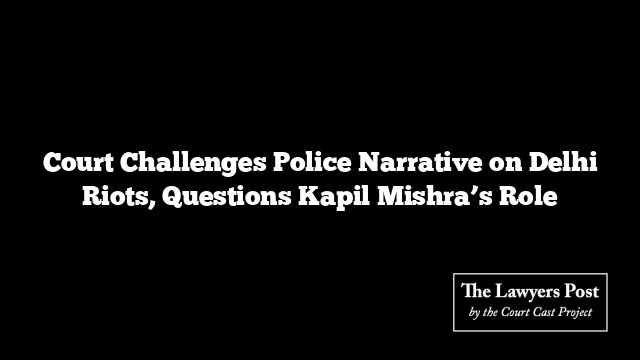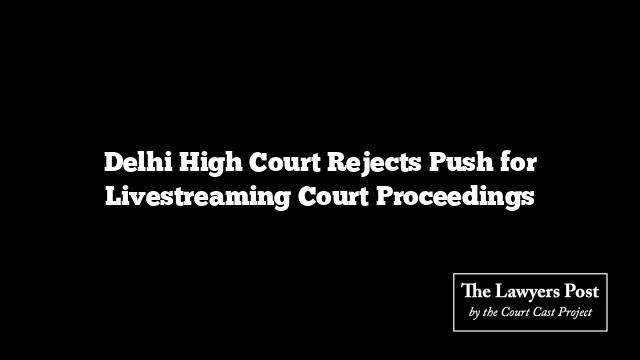A Delhi court has cast doubt on the police investigation into the 2020 Northeast Delhi riots, calling it a patchwork of assumptions and conjecture. The ruling challenges the narrative that anti-Citizenship Amendment Act (CAA) protests were merely a front for orchestrating violence.
Additional Judicial Magistrate Vaibhav Chaurasia pointed out fundamental flaws in the prosecution’s theory, noting that its foundation relied on speculative reasoning rather than concrete evidence. “Once these flaws are outlined, the theory collapses, as does the interpretation sought by the prosecution,” the court remarked.
The Delhi Police had claimed that the protests were not spontaneous but part of a coordinated effort to incite unrest. Among its arguments was the assertion that women were placed at the forefront to deter police action and facilitate violence. However, the court dismissed this as an implausible assumption, questioning why any community planning mass violence would endanger its most vulnerable members.
Significantly, the ruling also scrutinized the role of BJP leader and current Delhi law minister Kapil Mishra. The court highlighted that, just a day before the riots erupted, Mishra was in Northeast Delhi and engaged in discussions with Deputy Commissioner of Police (DCP) Ved Prakash Surya. Following their exchange, the officer warned protesters that their demonstrations could come at the cost of their lives.
While the police found no evidence of anti-Hindu rhetoric in the private communications of the accused, the court noted that Mishra’s statements framed the protests as a battle between “us and them,” reinforcing communal divisions.
The case stems from a complaint filed by Mohammad Ilyas, a resident of Yamuna Vihar, who sought an investigation into Mishra’s role in the riots. His petition cited multiple incidents, including allegations that Mishra and his supporters, with police backing, targeted Muslim and Dalit vendors by destroying their carts. Ilyas further alleged that DCP Surya had walked the streets, warning that protesters could face deadly consequences if they did not disperse.
Despite the police’s claims that Mishra had already been investigated and cleared, the court expressed skepticism. It took particular note of Mishra’s statement on February 23, 2020, in which he told police, “We are leaving now. Open the road, or we will return and sit in protest ourselves.” The court deemed this an ultimatum that directly preceded the outbreak of violence.
In response, the court ordered further investigation into Mishra’s involvement, particularly regarding the events in Kardampuri, and directed authorities to question DCP Surya, noting that his ominous warning suggested knowledge beyond what had been disclosed in court.





